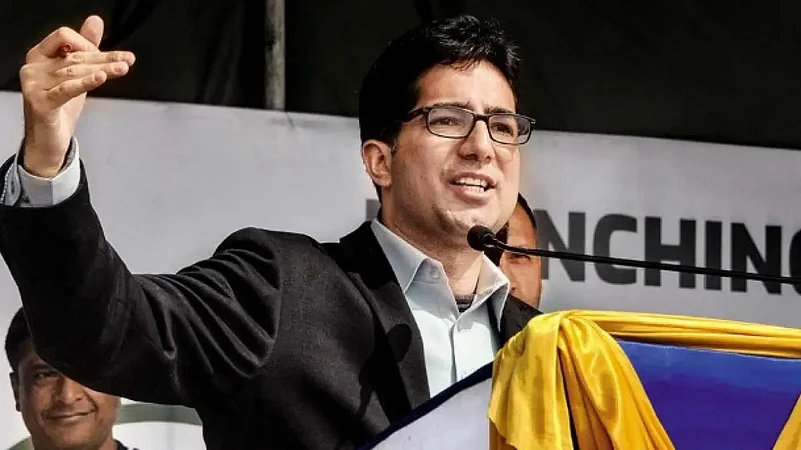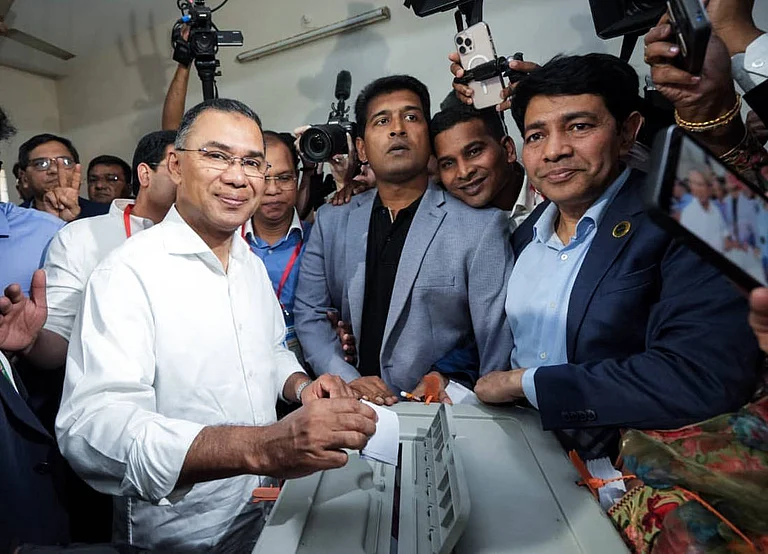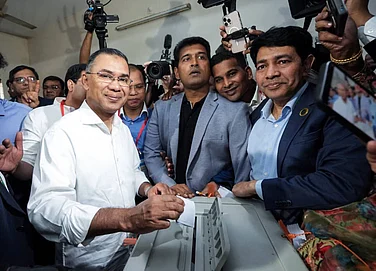Although IAS officer Shah Faesal says he has withdrawn his petition challenging the abrogation of Article 370 before the Supreme Court last year, the National Conference says the move will have no impact on other similar petitions.
“The withdrawal of the petition is not to have any impact as there are other petitioners,” says NC Member Parliament Justice (retd) Hasnian Masoodi. “I am hopeful that our challenge to August 5, 2019 decisions - denuding J&K of its special status and dismembering the State - will succeed, and so will my party,” he said.
Earlier Shah Faesal described Article 370 as a "thing of the past."
“Article 370, for many Kashmiris like me, is a thing of the past. Jhelum and Ganga have merged in the great Indian Ocean for good. There is no going back. There is only marching forward,” Faesal wrote on Twitter after the Supreme Court of India constituted a five-judge Constitution Bench headed by Chief Justice of India D.Y. Chandrachud to hear his petition on July 11.
The other judges on the Bench are Justice Sanjay Kishan Kaul, Justice Sanjiv Khanna, Justice B.R. Gavai, and Justice Surya Kant.
After the abrogation of Article 370 and bifurcation of J&K into two Union Territories on August 5, 2019, a number of petitions were filed before the Apex Court challenging the government move.
Apart from Shah Faesal, NGO People's Union of Civil Liberties (PUCL), Jammu and Kashmir High Court Bar Association and National Conference, CPI(M) and other political parties filed petitions before the apex court challenging the dilution of Article 370 and the subsequent bifurcation of the state. The petitions were admitted by the Apex Court.
Under Article 370, Jammu and Kashmir had a separate constitution called the Constitution of Jammu and Kashmir. While Article 35-A was prohibiting people from outside from buying property in Jammu and Kashmir, it was Article 35-A that ensured job reservation for residents of J&K.
Faesal was arrested on August 14, 2019, at the Delhi international airport and was put in preventive custody under Section 107 of the Code of Criminal Procedure. He was about to board a flight to the United States to complete his research study at the prestigious Harvard University when he was denied permission to travel abroad. Later in mid-February 2020, the Public Safety Act (PSA) was imposed on him. The government in its PSA dossier had accused Faesal of “supporting soft separatism” through social media posts. The dossier also mentioned certain allegedly “provocative statements” made in 2019.
After his release in June 2020, Faesal gave up political activities and resigned from his Jammu and Kashmir Peoples Movement.
In April 2022, he called his eight months (Jan 2019-Aug 2019) of political activism as “chasing a chimera.” “I lost almost everything that I had built over the years. Job. Friends. Reputation. Public goodwill. But I never lost hope. My idealism had let me down,” Faesal wrote in a Facebook post.
Shah Faesal was reinstated in the services as the government had not accepted his resignation. He is currently serving as Deputy Secretary in the Ministry of Culture.


























